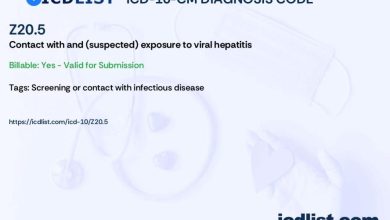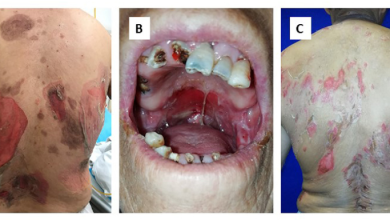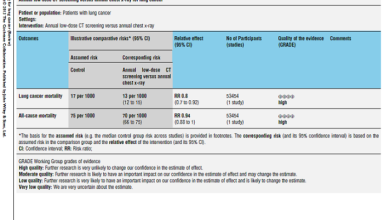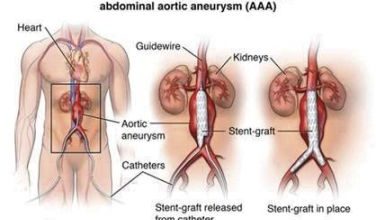Managing Moderate Asthma With Exacerbation: Understanding ICD-10 Codes
What is Moderate Asthma with Exacerbation ICD-10?
Moderate asthma with exacerbation is a specific medical condition that is classified under the International Classification of Diseases, Tenth Revision (ICD-10) coding system. This code is used by healthcare providers to accurately document and track cases of asthma that are considered moderate in severity and have worsened or been exacerbated.
Code Information
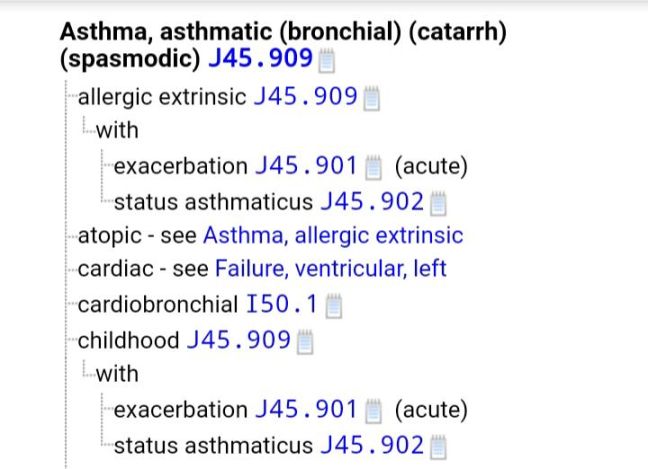
The ICD-10 code for moderate asthma with exacerbation is J45.41. This code specifically indicates asthma with (acute) exacerbation, moderate. It is important for healthcare professionals to use this code when diagnosing and treating patients with this particular form of asthma.
Diagnostic Related Groups (MS-DRG)
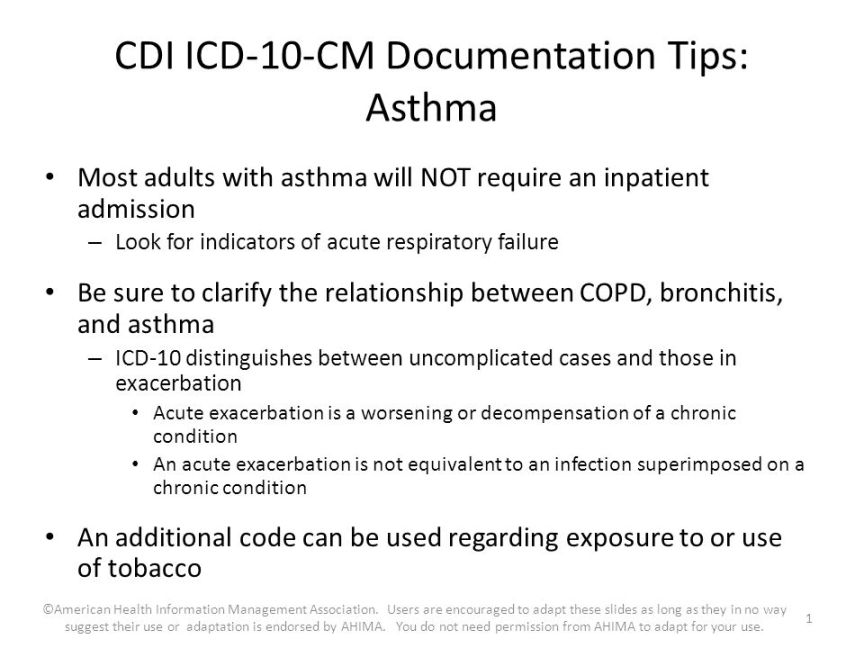
In terms of Diagnosis Related Groups (MS-DRG), moderate asthma with exacerbation falls under DRG 202 – Bronchitis and Asthma with CC/MCC. This grouping helps hospitals and healthcare facilities categorize and classify patients with similar diagnoses for billing and reimbursement purposes.
Convert to ICD-9 Code

If you need to convert the ICD-10 code for moderate asthma with exacerbation to the corresponding ICD-9 code, you would use 493.92. This code represents asthma, unspecified type, with exacerbation.
Code History
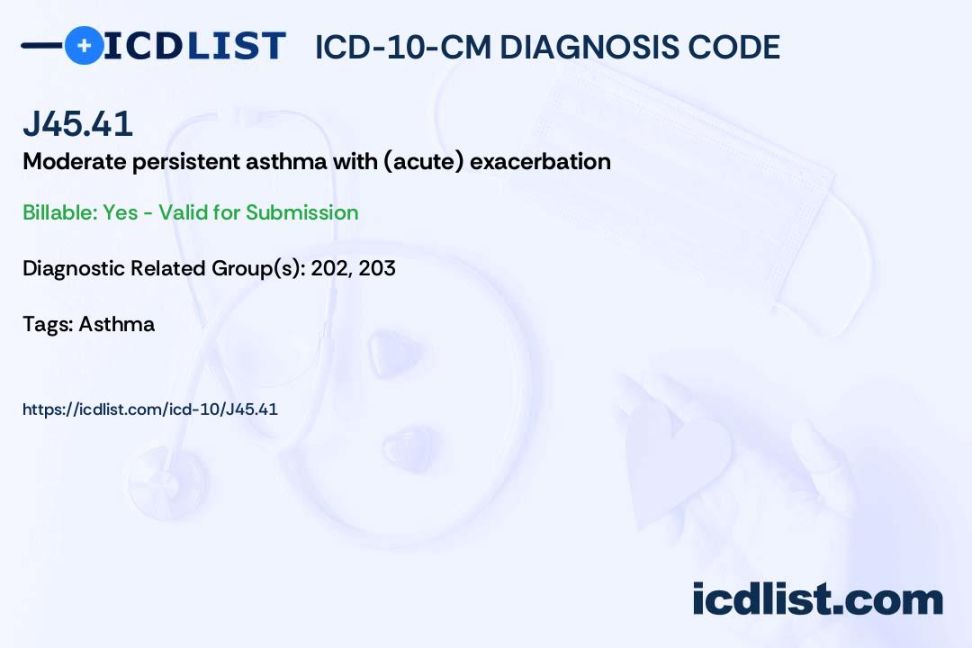
The ICD-10 code J45.41 for moderate asthma with exacerbation was introduced in 2015 as part of the updated coding system. It replaced the previous ICD-9 code for this condition and provides more specific and detailed information for healthcare providers.
Approximate Synonyms
Other terms and phrases that may be used interchangeably with moderate asthma with exacerbation include acute exacerbation of asthma, asthma attack, and asthma exacerbation. These synonyms all refer to the worsening or exacerbation of asthma symptoms.
Clinical Information
Moderate asthma with exacerbation is characterized by a worsening of asthma symptoms, such as shortness of breath, wheezing, chest tightness, and coughing. This condition can be triggered by various factors, including allergens, respiratory infections, exercise, and stress.
Causes
The exact cause of moderate asthma with exacerbation is not fully understood, but it is believed to involve a combination of genetic, environmental, and immunological factors. Triggers such as pollen, dust mites, pet dander, and air pollution can lead to inflammation and constriction of the airways in individuals with asthma.
Symptoms
Common symptoms of moderate asthma with exacerbation include increased difficulty breathing, chest tightness, wheezing sounds when exhaling, coughing, and a feeling of anxiety or panic due to the inability to catch one’s breath. These symptoms can vary in intensity and may require immediate medical attention.
Diagnosis
Diagnosing moderate asthma with exacerbation typically involves a physical exam, a review of symptoms, lung function tests (such as spirometry), and possibly allergy testing. Healthcare providers may also use imaging tests, such as chest X-rays, to rule out other potential causes of respiratory symptoms.
Treatment
The treatment for moderate asthma with exacerbation often includes the use of bronchodilators (such as albuterol) to open up the airways, corticosteroids to reduce inflammation, and possibly oxygen therapy in severe cases. Patients may also be advised to avoid triggers, use inhalers as prescribed, and follow an asthma action plan to manage their symptoms effectively.
Conclusion
In conclusion, moderate asthma with exacerbation is a serious medical condition that requires prompt diagnosis and appropriate treatment to prevent complications and improve quality of life for patients. By understanding the ICD-10 code, clinical information, causes, symptoms, diagnosis, and treatment options for this condition, healthcare providers can effectively manage cases of moderate asthma with exacerbation.
FAQs
1. Can moderate asthma with exacerbation be cured?
Currently, there is no cure for asthma, but symptoms can be managed effectively with proper treatment and lifestyle changes.
2. Is moderate asthma with exacerbation a life-threatening condition?
In severe cases, asthma exacerbation can be life-threatening if not treated promptly and appropriately. It is important to seek medical attention if experiencing severe asthma symptoms.
3. How can I prevent asthma exacerbation?
Avoid




